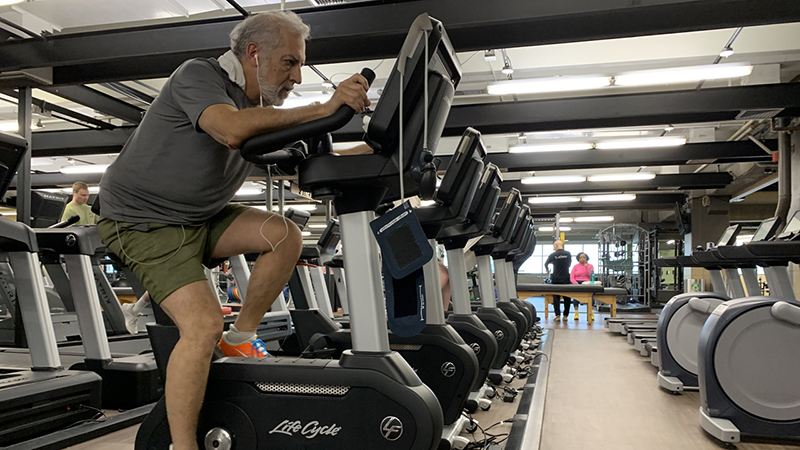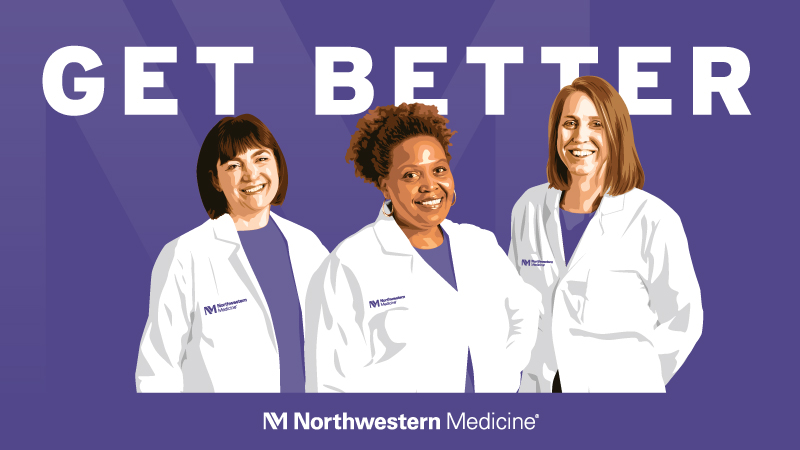What to Expect During Cardiac Surgery
Your healthcare team will provide information about how to prepare for your cardiac surgery. Here are the typical steps to expect as part of the surgery process.
- A healthcare professional will insert IV (intravenous) lines into your veins. These have several uses, including delivering medication and monitoring your heart and blood pressure during surgery.
- The anesthesiologist will keep track of your heart rate, blood pressure, breathing and blood oxygen level during the surgery.
- Once you are put into a deep sleep, a breathing tube will be put into your throat. You will be connected to a ventilator, which will breathe for you during the surgery.
- Depending on your procedure, your surgeon may place you on a heart-lung machine. This will keep your blood pumping during the surgery if your physician needs to stop your heart.
- Once all the tubes and monitors are in place, your surgeon will begin the procedure.
- When the procedure is finished, the surgeon will close any openings they made in your skin and, if necessary, your sternum (breastbone). As they do this, they will insert tubes into your chest to drain blood and other fluids from around your heart if needed.
- They will then apply a sterile bandage or dressing.
- You will be moved to the intensive care unit (ICU) to begin your recovery.
Risks of Cardiac Surgery
It is normal to be nervous about surgery. All surgery carries some risk. However, at Northwestern Medicine, complications during and after cardiac surgery are rare.
Northwestern Medicine Bluhm Cardiovascular Institute is anchored by Northwestern Memorial Hospital, which was ranked among the top 20 hospitals in the world for cardiac surgery. The hospital also has the highest available cardiology, heart and vascular surgery patient survival score according to U.S. News & World Report, 2025 – 2026.
It is important that you understand the possible risks. These include:
- Bleeding during or after the surgery
- Infection
- Pneumonia
- Breathing problems
- Kidney failure
- Abnormal heart rhythms
- Failure of the graft (if applicable)
- Heart attack
- Stroke
- Death
You may have other risks depending on your medical condition. Be sure to discuss any concerns with your healthcare team before the procedure.
After Cardiac Surgery: What to Expect in the Hospital
After most cardiac surgeries, you will need to stay in the hospital at least a few days. How long you stay will depend on:
- The type of procedure you had
- Your age
- Your general health before surgery
After surgery, you will be taken to the intensive care unit, or ICU. The care team there will monitor you closely. Machines will constantly display your:
- Heart rhythm
- Blood pressure
- Other measurements of your heart
- Breathing rate
- Oxygen level
You will likely have a tube in your throat to help with breathing through a ventilator (breathing machine). You will be sedated while you have a breathing tube. When you are awake enough to breathe completely on your own, your physician will remove the breathing tube.
After the breathing tube is out, a nurse will help you cough and take deep breaths every couple of hours. Your nurse and ICU team will make sure you are comfortable enough to do this.
Once you are awake enough to swallow safely, you can start taking liquids and then solid food. It is normal to not feel very hungry early after surgery.
Your physician may deliver medications through the IV to help your blood pressure and your heart, and to control any problems with bleeding. As your condition becomes stable, they will gradually decrease and then stop these medications.
The surgical incision(s) may be tender or sore for several days after the procedure. You may take pain relievers as recommended by your physician.
Your nurse will work with the physical and occupational therapy teams to help you out of bed and to a chair. As soon as you are strong enough, they will help you walk and participate in physical and occupational therapy. You will be up and walking the day after surgery.
When your physician determines that you are ready, you will be moved from the ICU to a post-surgical nursing unit. Your recovery will continue there.
On this unit, you will slowly increase your activity as you get out of bed and walk around for longer periods. This helps prevent complications from the surgery, such as pneumonia or blood clots in your legs.
You will keep working with the physical and occupational therapists. They will help you recover and assess your progress.
- In some cases, your therapists may recommend more therapy at home or in a rehabilitation hospital.
- If you need this type of care, our team will help arrange it.
A member of your care team will help with your discharge plans.
- They will give you instructions about your recovery. Follow all the instructions your healthcare team gives you.
- They will teach you about your medications, exercise, diet and wound care.
- They also will schedule a follow-up visit with your physician.
Follow-Up Care After Hospital Discharge
Most patients will go home from the hospital after cardiac surgery. Your care team may recommend more care after you are discharged. We can help you arrange to get the care you need.
In-Home Physical and Occupational Therapy
If needed, we can arrange for therapy sessions in your home after surgery. This allows you to recover where you are most comfortable without having to leave home for this kind of treatment. Your therapist will help you walk, go up stairs and do other basic activities of daily living.
Northwestern Medicine works closely with a network of rehabilitation providers. Your care team can help you choose a provider that meets your needs.
Inpatient Therapy in a Rehabilitation Facility
Some patients may need more intensive therapy to recover from cardiac surgery. At a rehabilitation facility, you will have around-the-clock care and access to longer, more frequent therapy sessions to help you get stronger.
Northwestern Medicine works closely with a network of rehabilitation providers. Your care team can help you choose the right location and arrange for your transfer.
Cardiac Rehabilitation
For most patients, we recommend you start cardiac rehabilitation six weeks after surgery. This can help you get back to a normal lifestyle.
In a supervised cardiac rehabilitation program, staff will monitor you as you slowly begin exercise sessions in a facility. Over time, you will progress to exercising on your own. Your cardiac rehabilitation team will teach you about your condition and heart health, and can help you create an exercise routine and a healthy diet to help prevent heart problems in the future.



